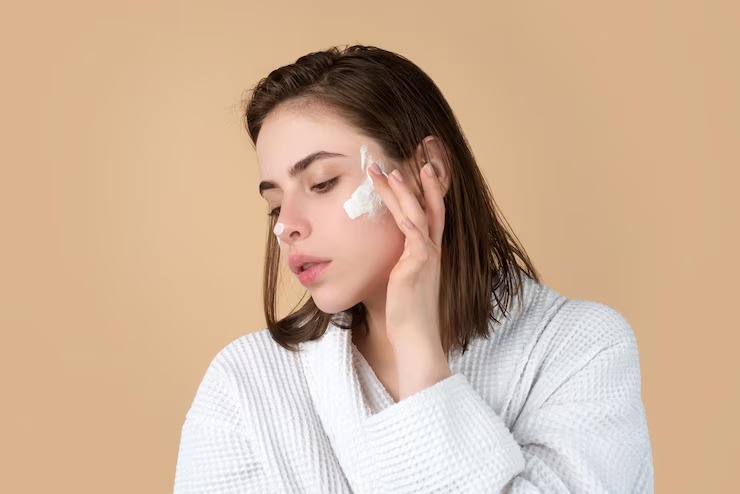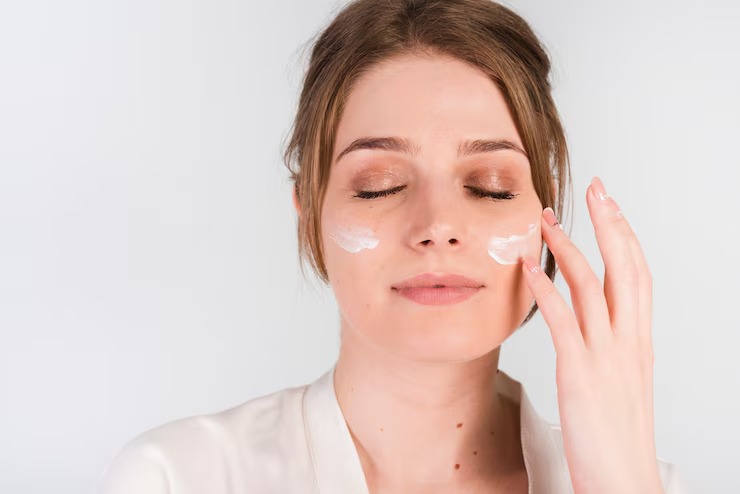How to Take Care of Your Skin’s Needs
Introduction
Having sensitive skin can feel like walking a tightrope. One wrong move and your skin could break out, itch, or turn red. If this sounds familiar, you’re not alone. Millions of people worldwide deal with the challenges of sensitive skin daily.
Lately, a growing trend called “skinimalism” has emerged and is appealing to those with sensitive skin. By simplifying your routine and focusing on fewer, high-quality products, skinimalism offers an effective, minimalist approach to skincare.
This blog will walk you through everything you need to know about caring for sensitive skin, from understanding its triggers to building a personalized, gentle skincare routine.
Understanding Sensitive Skin
What is sensitive skin?
Sensitive skin isn’t a medical diagnosis but rather a term for skin that’s easily irritated. It reacts strongly to factors that wouldn’t normally bother other skin types.
Symptoms and triggers
If your skin often feels tight, itchy, or develops redness and dryness, you may have sensitive skin. Common triggers include environmental pollutants, harsh ingredients, hot water, extreme weather, and stress.

The science behind skin sensitivity
Sensitive skin often has a compromised barrier function. This means it struggles to keep irritants out and moisture in. It can also be more reactive due to nerve-ending sensitivity. Treating it gently is key to strengthening its resilience.
Key Ingredients to Look For in Sensitive Skincare
Soothing and calming ingredients
- Chamomile extract: Reduces inflammation and redness.
- Aloe vera: Known for its cooling and healing properties.
- Calendula: A natural ingredient that soothes irritation.
Hydrating and moisturizing agents
- Hyaluronic acid: Keeps skin plump and hydrated.
- Shea butter: Provides deep hydration and strengthens the skin barrier.
- Glycerin: Retains moisture and prevents dryness.
Ingredients to avoid
- Fragrances: Can be irritating and allergenic.
- Alcohol (denatured): Dries out the skin.
- Harsh exfoliants: These can strip the skin and worsen sensitivity.
Building a Minimalist Skincare Routine for Sensitive Skin

Gentle cleansing
Use soap-free, pH-balanced cleansers. Look for ones labeled “fragrance-free” and specifically designed for sensitive skin.
Hydration
A fragrance-free, non-comedogenic moisturizer is essential. Ingredients like ceramides and niacinamide help reinforce the skin barrier.
Sun protection
Sunscreen is crucial for protecting sensitive skin. Opt for mineral-based sunscreens containing zinc oxide or titanium dioxide, as they are less likely to cause irritation.
Treatment
If using serums or targeted treatments, stick to one active ingredient at a time. Test products with calming actives like centella asiatica or niacinamide.
Step-by-Step Skincare Routine
Morning routine
- Cleanse with a gentle product.
- Hydrate using a lightweight moisturizer.
- Protect with a mineral sunscreen.
Evening routine
- Remove makeup with a micellar water or oil-based cleanser.
- Cleanse with your gentle cleanser.
- Apply moisturizer to lock in hydration.
Weekly routine
- Use a hydrating mask with aloe vera or hyaluronic acid once a week.
- Exfoliate sparingly using a mild enzyme exfoliator, no more than once weekly.
Lifestyle Factors Affecting Sensitive Skin
Diet and hydration

Eating a balanced diet rich in antioxidants and drinking plenty of water can improve your skin’s health. Foods like salmon (high in omega-3s) and berries (rich in antioxidants) work wonders.
Stress management
Stress can trigger flare-ups. Practice stress-relieving activities like yoga, meditation, or even a simple walk outdoors.
Sleep
Did you know your skin repairs itself while you sleep? Aim for 7–8 hours of uninterrupted rest each night.
Common Mistakes to Avoid
- Over-exfoliating: Strips your skin and causes irritation.
- Using too many products: Can overwhelm sensitive skin.
- Skipping patch tests: Test new products on a small area to avoid reactions.
Real-Life Examples of Sensitive Skin Success
Ella’s story: Ella struggled with constant redness until she switched to a minimalist routine with calming products. Her eczema improved dramatically within a month.
Sofia’s solution: Sofia avoided exfoliation for years out of fear. After incorporating a gentle enzyme exfoliator weekly, her skin looked brighter without irritation.
Pros and Cons of Skinimalism for Sensitive Skin

Benefits
- Reduced risk of irritation caused by overloading products.
- Simple, streamlined routine saves time and money.
- Effective for building a healthier skin barrier.
Drawbacks
- Limited choices may not address all skin concerns.
- Finding multifunctional products can take time.
Ingredients to Use vs. Avoid
| Ingredients to Use | Ingredients to Avoid |
|---|---|
| Aloe vera, chamomile, ceramides | Fragrances, alcohol, parabens |
| Hyaluronic acid, shea butter | Harsh exfoliants, sulfates |
| Zinc oxide, titanium dioxide | Essential oils |
People Also Ask
What is skinimalism?
Skinimalism refers to a minimalist skincare approach that focuses on fewer, highly effective products.
Can I exfoliate with sensitive skin?
Yes, but opt for enzyme-based exfoliants and use them sparingly, no more than once a week.
Is sunscreen necessary for sensitive skin?
Absolutely. Sunscreen protects against UV damage, which can worsen sensitivity.
FAQ Section
Will a minimalist routine work for all sensitive skin types?
While most sensitive skin types benefit from simplicity, consulting with a dermatologist ensures the approach suits your individual needs.
Can sensitive skin tolerate actives like vitamin C or retinol?
Introduce these ingredients slowly and in low concentrations, and always test beforehand.
How can I find fragrance-free products?
Look for products labeled “unscented” or “fragrance-free.” Check the ingredient list for hidden fragrances like linalool or limonene.

Recapping the Benefits of Minimalist Skincare
Sensitive skin thrives on simplicity. By adopting a minimalist skincare routine and focusing on gentle, nourishing ingredients, you can manage irritation, strengthen your skin barrier, and achieve a healthier complexion.
If you’re ready to make a change, give skinimalism a try. When in doubt, consult a dermatologist or skincare professional to guide your choices.


